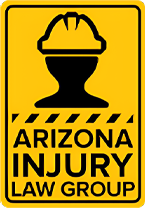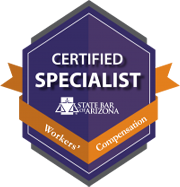|
|
Last Modified on Dec 31, 2024
If you work in the state, you are likely covered by your employer’s workers’ compensation insurance policy if you sustain any work-related injury. State law requires almost every employer to have this insurance, and almost every employee is covered. When a workplace injury happens, the victim should report the incident to their supervisor immediately and seek medical care as soon as possible. A successful workers’ compensation claim can yield substantial benefits that help the victim recover.
When you find yourself in the aftermath of a work injury, it is natural to wonder how much you could potentially secure in workers’ compensation benefits. Most injured workers will qualify for two forms of compensation, and having experienced legal counsel on their side will make it much easier for them to maximize these benefits as much as state law allows.

Benefits Available for Your Work Injury
Workers’ compensation insurance protects employers by shielding them from civil suits from injured employees. If you suffer a work injury, you cannot sue your boss unless they do not have appropriate workers’ compensation insurance coverage. If they do, you have the right to file a claim for benefits to help you recover.
Generally, an injured worker qualifies for two types of compensation for a work injury. First, the insurance carrier will pay for all medical expenses they incur from their injury. This includes immediate and future medical expenses if they need ongoing care. For example, you may require hospital treatment immediately after your injury, but you may also need ongoing physical therapy. The insurance carrier will pay for all these medical expenses as long as they are directly related to your work injury.
The second form of compensation is disability benefits. These benefits are paid monthly to offset the financial impact of the claimant’s inability to work and earn income after their injury. It’s possible for the claimant to qualify for partial disability benefits if they can still work but cannot earn as much income as they did prior to their injury. The claimant will need to report their earnings to the insurer to maintain eligibility for partial disability benefits, and these payments cease once they are able to resume their previous work duties and reach their previous earning capacity. However, if they are completely unable to work, they can receive total disability benefits. The typical rate for total disability benefits is 66% or two-thirds of the claimant’s average monthly wages prior to their injury.
Workers’ compensation is generally flexible, and while you will face some limitations in terms of the benefits you could receive, you could be entitled to recover more than you initially expected. Having an experienced attorney help with your case will significantly improve your chances of maximizing your workers’ compensation benefits. The Arizona Injury Law Group, PLLC, can review your case and guide you through the claim filing process, addressing any complications you might encounter along the way.
FAQs About Arizona Workers’ Comp Pay
How Long Will I Have to Wait for Workers’ Compensation Benefits?
There is a mandatory seven-day waiting period for workers’ compensation benefits in Arizona. This means you must be out of work for seven consecutive days before you can receive benefits. An injured worker should report their injury to their supervisor immediately and seek prompt medical care, and their employer should provide them with the materials they need for their claim. Any delay in starting this process means it will take longer for you to receive your benefits.
What Is the Highest Workers’ Compensation Rate?
The amount a claimant receives in income replacement benefits for disability after a work-related injury in the state is $5,393.37 per month. However, the exact amount you will receive in disability benefits depends on the severity of your injury and how much you typically earned each pay period prior to the injury. Your workers’ comp attorney can help ensure that you receive appropriate benefits that accurately reflect the severity of your injury.
Can I Receive Permanent Disability Pay?
When an injured worker has been permanently disabled and cannot return to work, they can qualify for permanent disability benefits. These are paid at a rate of two-thirds or 66% of their average monthly wage prior to the accident. An experienced workers’ compensation attorney can help their clients prove the full extent of their injury and help them qualify for the maximum benefits possible under their employer’s policy.
Do I Need to Hire an Attorney for a Workers’ Compensation Claim?
Technically, no, you can try to file a claim on your own if you choose, but you must acknowledge the risks you would face in doing so. An experienced attorney can answer your questions and streamline your receipt of benefits. If you tried to handle your claim alone, you could overlook important details or miss a deadline that jeopardizes your benefits determination. If your employer disputes your claim, you will need legal counsel to help you fight their dispute, and you could have grounds for alternative recovery options that you may not have realized on your own.
How Much Does It Cost to Hire a Workers’ Compensation Attorney?
Most attorneys representing workers’ compensation claims work on contingency. This means the attorney only gets paid if their client wins a settlement, and the attorney’s fee is a percentage of this settlement. When you choose the Arizona Injury Law Group, PLLC, to represent your case, we will only take a contingency fee if and when we secure a settlement on your behalf, so we will not make your financial situation worse after a workplace injury by charging expensive hourly fees.
Ultimately, any work injury claim can impose difficult questions on claimants, and having legal counsel you can trust for this legal process is a vital asset. If you or a family member is struggling in the aftermath of a work injury and want to maximize your benefits determination, the Arizona Injury Law Group, PLLC, is ready to assist you. Contact us today and schedule a free consultation with our team to learn more about the services we offer.






